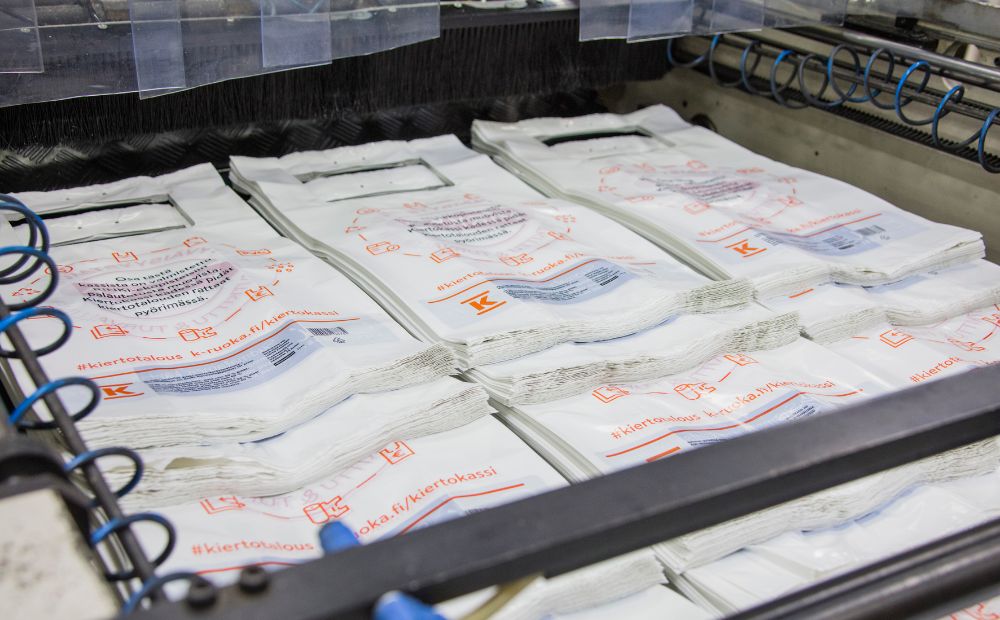More food packaging regulations are coming – what will it mean for recycling?

Only recycled plastic material that has been manufactured using approved methods can come into contact with foods, either directly or indirectly. This is a requirement laid down in the European Commission regulation on recycled plastic materials that entered into force in 2022. The new regulation repealed previous legislation from 2008 and introduced more restrictions on plastic recycling.
For consumers, the most visible impact of the new regulation can perhaps be seen in plastic grocery bags, which should no longer come into direct contact with foods. However, the aim was not to phase out bags made from recycled plastic completely, due to the fear that the change would have a negative impact on recycling rates of plastic packaging.
“It would have been a shame if we had been forced to phase out these bags. Bags made from recycled plastic are an extremely important product that can be manufactured using reprocessed plastic. It needs its own applications and there are not too many of them,” explains Ilkka Nieminen, the Managing Director of the Finnish Grocery Trade Association.
The Finnish Food Authority and the Finnish Grocery Trade Association have addressed food safety and recycling considerations together by adding a label to grocery bags made from recycled plastic: ‘This bag is not suitable for unpackaged food’. Thanks to the label, bags made from recycled plastic can still be used, as most food products sold in grocery stores are pre-packaged.
“The Finnish Food Authority and the Finnish Grocery Trade Association considered how grocery bags are actually used, which made it possible to come up with a targeted solution for any special cases, or the label text, which does not prevent the use of plastic grocery bags,” Nieminen says. By special cases, Nieminen is referring to consumers, for instance, storing unpackaged foods in a bag made from recycled plastic at home long term. The bags are still perfectly suitable for carrying packaged food products.
Fewer plastic bags in the future
Nieminen believes that the change will not have a significant impact on the use of bags made from recycled plastic in Finland. “Bags made from reprocessed plastic have been available for years and they have established their position as the most important shopping bag sold in grocery shops.”
“As for the positive impacts of this change, it will accelerate the advances in the quality management of the manufacturing of plastic bags,” Nieminen says. In the future, the challenge will be to develop recycled plastic that is suitable for contact with food.
However, the use of plastic bags in general is currently being phased down. In 2016, the Finnish Commerce Federation and the Ministry of the Environment signed the Green Deal agreement, a goal of which is for the average Finn to use no more than 40 plastic bags a year by 2025. According to Nieminen, the current figure is over 60 plastic bags a year. He estimates that grocery bags bought from grocery shops account for approximately 85% of the plastic bags covered by the Green Deal.
Food packaging requires new material solutions
The work to combine food safety and recycling considerations will continue in the future. Nieminen mentions the new EU Packaging and Packaging Waste Regulation (PPWR), which, in its current state, would require plastic packaging to contain a certain amount of recycled plastic. It also applies to food packaging, which poses challenges to ensuring food safety.
“A high proportion of all packaging is food packaging. The challenge for us is to find new plastic recycling solutions that can produce plastic suitable for use in food packaging,” Nieminen says.